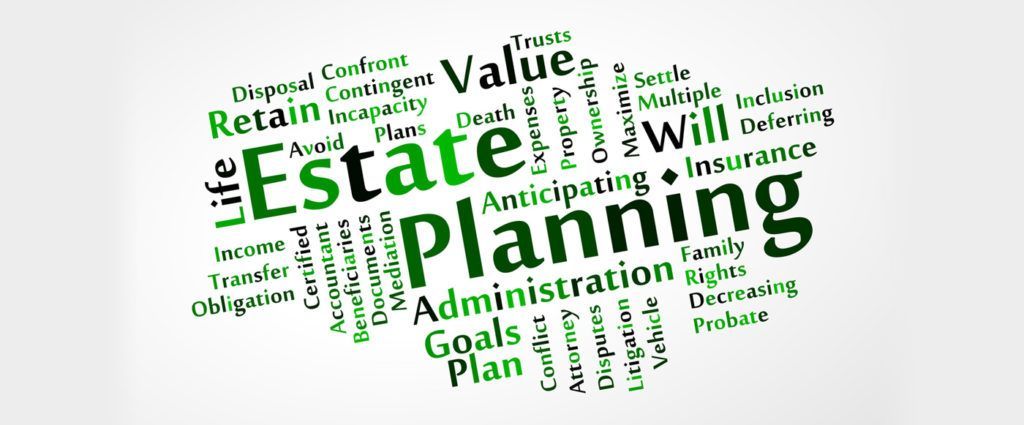5 Questions to Ask If You’re the Executor of an Estate
When we saw the Wall Street Journal published an article this week called, “Five Questions to Ask if You Are Named Executor of an Estate,” we immediately knew that the article would be a list of the important matters we go over with our probate clients on a daily basis at the Thav, Ryke & Associates Law Firm in Michigan. Our probate attorneys presume that estate executors don’t usually know the right questions they should be asking a lawyer so we create a list of these critical probate issues to cover with our clients and their relatives.
It’s certainly not surprising that the opening sentence of the WSJ article begins with, “The first thing: Make sure you have all the professional help you need.” That’s obvious. Estate Executors can’t go it alone. There’s a reason why probate law is one of the most important legal categories. Our team is here for you. Being the executor of a relative’s estate will be a daunting task. If you try to go it alone, it will be even more time-consuming, overwhelming and anxiety-ridden. We are here to take the anxiety out of the equation and guide you along the path.
“Being an executor for the first time can be a daunting task, especially if family disputes arise. You’re in charge of settling a deceased relative’s estate. And, if you’re like many people, you have no idea what to do.”
When there are disputes, you’ll really need assistance. You can call or email your probate attorney at the Thav, Ryke & Associates Law Firm in Michigan at any time. We are on your side and we will counsel you through this entire probate process as the executor of the estate.
Below are the 5 questions the Wall Street Journal set out to answer, but at the Thav, Ryke & Associates Law Firm in Michigan, we know there are many more questions you will have (and many more questions you should be asking). Call us today!
1. Who is on the team?
One of the first steps usually is asking to be recognized as a personal representative of the estate by a local court that handles estate matters, commonly termed a probate court. Depending on the situation, this person might be called an executor, administrator or a trustee. The application needs to be accompanied by a copy of a will, if one exists, and a death certificate.
The representative then moves ahead with such tasks as notifying heirs, making an inventory of assets and notifying creditors, either by a newspaper ad or direct communication if they are known.
When estates comprise lots of kinds of investments and involve many heirs, it often helps to hire an attorney with estate-administration experience. Maybe the lawyer who drafted the will and other documents. That person already will be familiar with the estate and might have a rapport with family members, says Susan Wedelich, a lawyer and adviser at Westwood Wealth Management, Houston.
In many cases, professionals such as financial planners and accountants also can be helpful. A qualified appraiser, too, can be necessary when an estate includes items that need to be appraised for tax reporting, such as art, land or a business, says Christy Matzen, financial-planning director at New York-based Zoe Financial, a financial-advice platform. The Internal Revenue Service has certain rules for how assets are valued, including documenting the qualifications of the person doing the appraisals, she says.
2. Was a trust created?
An initial probate court filing might be unnecessary if the deceased, before death, created a trust to hold the assets for the benefit of heirs.
Trusts are arrangements for transferring assets from their owner to a legal parking place for eventual distribution to beneficiaries. Someone overseeing such a vehicle—called a trustee rather than an executor, although many of the responsibilities are the same—is charged with distributing the assets under the terms of the trust.
A trust can make it possible to avoid the requirements and delays of going through probate. But sometimes a trust won’t contain all the important assets in an estate, particularly if it has been a number of years since the trust first was created, says Charles Hart, an adviser in Plano, Texas, with Credent Wealth Management.
Transferring ownership of assets outside of the trust still might require going through probate court.
3. Are funds available to cover near-term costs?
It can take weeks for a court to officially appoint a personal representative. Meanwhile, bills related to the estate’s settlement can pile up, ranging from funeral expenses to professional fees. While the assets of a surviving spouse might provide a temporary solution in an emergency, the executor ultimately will need to use the estate’s money for expenses, says Joe Goetz, a partner at Georgia-based Elwood & Goetz and professor of financial planning at the University of Georgia.
If an accountant isn’t being used, Dr. Goetz usually suggests that the executor create two financial statements: a balance sheet of the estate’s assets and liabilities, and a separate list of expected sources of income and expenses, or a so-called cash-flow statement.
4. Are the estate’s assets suitable for the heirs?
A portfolio serving the needs of an older person can be very conservative, but that kind of portfolio might not be appropriate for younger heirs who typically need growth to meet projected needs in the far future. Moreover, trusts sometimes require that assets be distributed to younger heirs only after they have reached a certain age, such as 30.
In both situations, younger heirs stand to benefit more if their inheritance can be invested with potential growth in mind, in addition to capital preservation, while they wait to actually receive it.
There can be other considerations. The deceased might have left specific amounts to some beneficiaries—for example, to support a surviving elderly spouse or to meet a charitable obligation—and the remainder to others, says Elliot Dole, an adviser at Buckingham Strategic Wealth in St. Louis. Governing any actions, an executor or trustee needs to meet a high fiduciary standard and act in the best interests of all beneficiaries, adds Mr. Dole.
5. Are heirs on board with the timetable?
Because estate settlement often isn’t well understood by people who have never been through it, some heirs might wonder why it is taking so long to settle things and distribute the assets. The angst might be more intense if the deceased was helping some relatives meet living expenses.
To help smooth the process, an executor should think about meeting individually with heirs early on to assess their wants and needs, says Ms. Wedelich of Westwood Wealth Management. If demands are in conflict and heirs seem intractable, it might be worth hiring a professional mediator to help settle differences, because the family member serving as executor or trustee might not be viewed by other heirs as impartial.
Settlement of a trust could take a matter of months, but an estate going through probate court can easily take a year or more, professionals say. It might go more slowly if the estate contains assets that are less easy to sell, such as fine art, land or a business.
The post 5 Questions to Ask If You’re the Executor of an Estate appeared first on Probate Law Firm in Michigan - Thav, Ryke & Langan.










